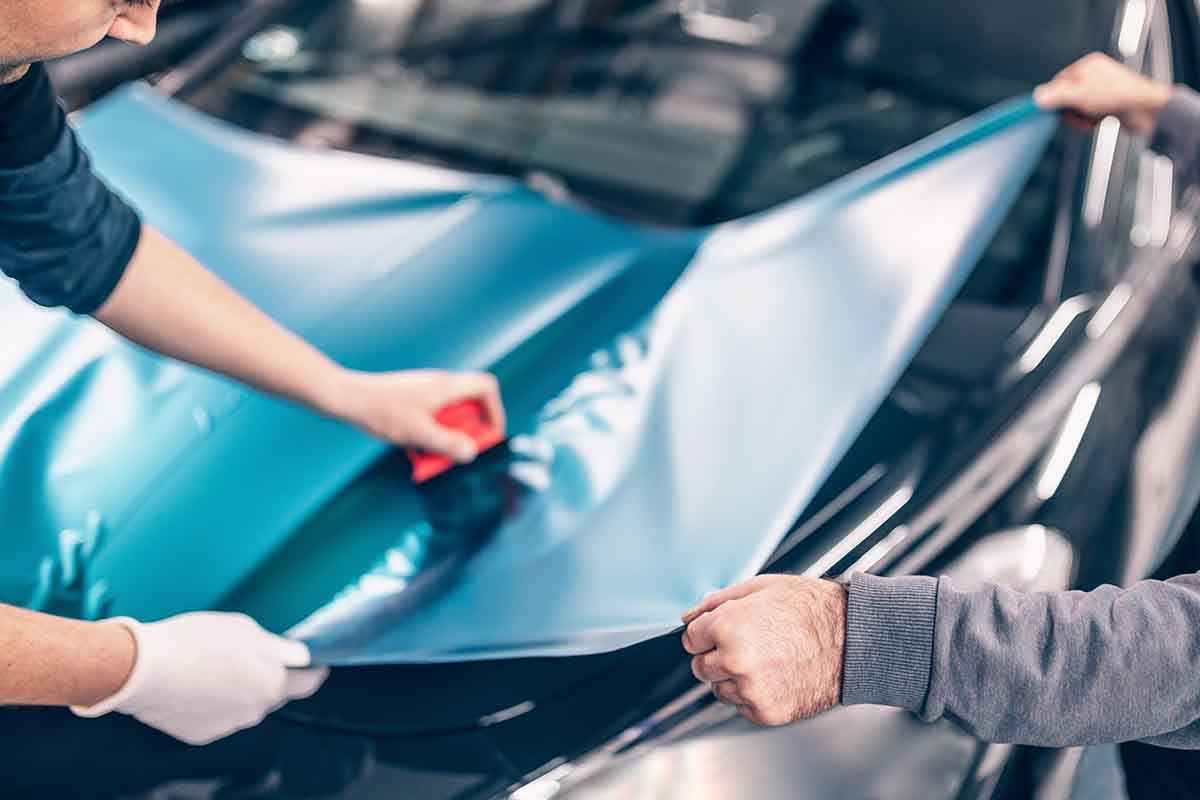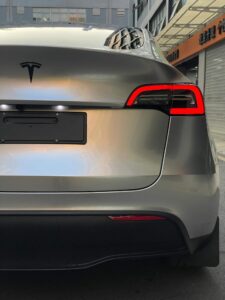In the world of car customization, the competition to stand out has never been fiercer. From paint jobs to vinyl wraps, every method has its fans—but a new technology is taking the industry by storm. TPU (Thermoplastic Polyurethane) car wraps are revolutionizing how drivers protect and personalize their vehicles.
This article explains what TPU wraps are, how they differ from traditional vinyl, and why they’re quickly becoming the top choice for both professionals and enthusiasts.
What Exactly Is a TPU Car Wrap?
TPU (Thermoplastic Polyurethane) is an advanced polymer known for its elasticity, durability, and self-healing properties. In car wraps, TPU films combine high-performance coatings and adhesives to create a flexible, glossy, or matte finish that both enhances and protects your vehicle’s exterior.
Unlike standard vinyl films, which are based on PVC (polyvinyl chloride), TPU wraps have a unique molecular structure that makes them:
- More resistant to scratches and impact
- Less likely to fade or yellow under UV light
- Easier to stretch and conform around complex shapes
- More eco-friendly and stable over time
Essentially, TPU wraps bridge the gap between a protective film and a style upgrade—giving drivers the best of both worlds.
TPU vs. Vinyl: What’s the Real Difference?
If you’ve been around the wrapping scene, you know vinyl has long been the standard. But TPU films bring a higher level of engineering and performance that vinyl simply can’t match.
| Feature | Traditional Vinyl Wrap | TPU Car Wrap |
| Flexibility | Limited stretch, prone to tearing | High elasticity, conforms easily |
| Durability | Can crack or peel over time | Long-term stability and resilience |
| UV Resistance | May fade or discolor | Superior UV protection and color retention |
| Scratch Resistance | None | Self-healing under heat |
| Adhesive Residue | May leave glue | Clean removal with minimal residue |
| Environmental Safety | PVC-based, may emit VOCs | Non-PVC, safer and more stable |
That’s why many professional installers now offer TPU as their premium line—it performs better, lasts longer, and delivers a high-end look customers love.
Why TPU Car Wraps Are Changing the Game
- Dual Function: Beauty + Protection TPU films are not just for aesthetics—they’re also protective. They resist road debris, small scratches, UV damage, and weathering. That means your car looks amazing while the original paint stays pristine underneath.
- Longer Lifespan Vinyl wraps typically last 2–3 years before noticeable wear appears. A high-quality TPU wrap can last up to 5–7 years, depending on care and climate conditions.
- Easier Maintenance TPU films are smoother and less porous, making them easier to clean and more resistant to water spots or stains. A quick wash restores the gloss without harsh chemicals.
- High-End Look & Feel The finish of TPU wraps—especially metallic, satin, and color-shift styles—feels deeper and more “paint-like” than vinyl. For owners who want a luxurious appearance, TPU delivers.
- Eco-Friendly Manufacturing Since TPU is PVC-free and contains fewer volatile chemicals, it’s a more environmentally responsible option, aligning with the sustainability trend in the automotive industry.
Real-World Example
A customer in California wrapped his Tesla Model 3 in a satin green TPU film. After two years of exposure to strong sunlight and regular washes, the wrap still looked brand new. No fading, no peeling, no discoloration. When removed, the original paint underneath was flawless.
Stories like this are becoming common in the U.S. and Europe, as professional installers switch to TPU for its reliability and customer satisfaction.
Tips for Proper Installation
Even though TPU is more forgiving than vinyl, good installation still matters. Here are some pro tips:
- Surface prep: Clean thoroughly with isopropyl alcohol to remove all wax and residue.
- Temperature control: Install between 70–85°F (21–29°C) for best adhesion.
- Gentle heating: Avoid overheating; TPU responds to moderate heat.
- Post-heating: Always post-heat edges to seal them properly.
- Use quality tools: A soft-edge squeegee and clean microfiber cloth go a long way.
What TPU Wraps Mean for You
If you’re a car owner, TPU gives you a premium look that lasts longer and protects your investment.
If you’re a wrap installer, it opens doors to a new high-margin product segment with fewer warranty issues and happier clients.
If you’re a distributor, it’s a chance to lead the market with next-generation materials.
Simply put: TPU wraps aren’t just an upgrade—they’re the future.
Final Thoughts
As customization becomes a lifestyle statement, drivers demand smarter solutions that combine style, protection, and sustainability. TPU car wraps meet all three. Whether you’re after a bold color change, a subtle finish upgrade, or paint protection with a twist, TPU technology delivers unmatched performance.
Discover our full range of TPU wraps at tpucarwraps.com — explore vibrant colors, durable finishes, and cutting-edge materials built to last.





